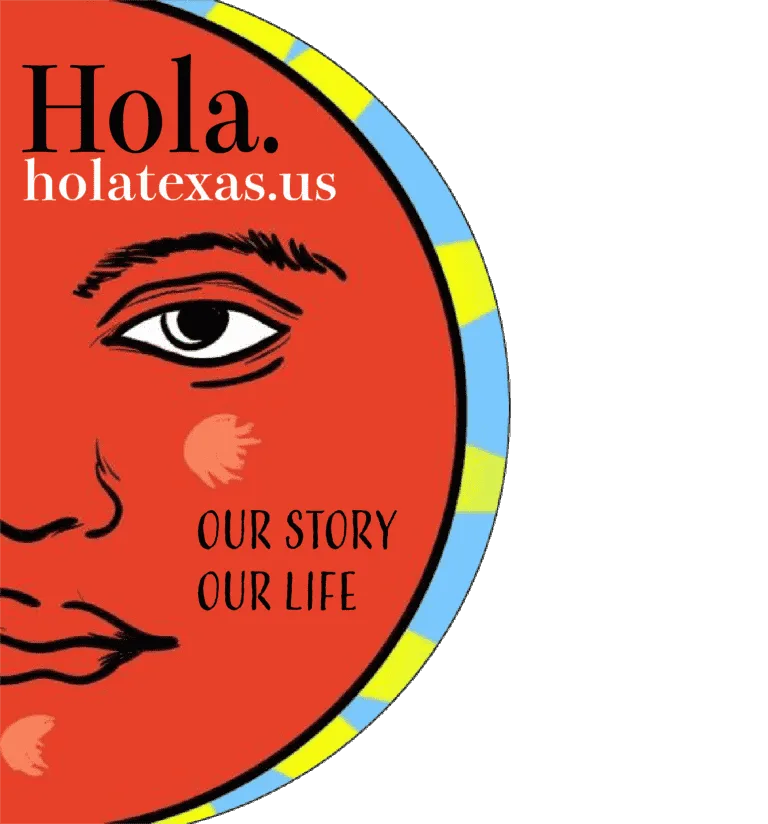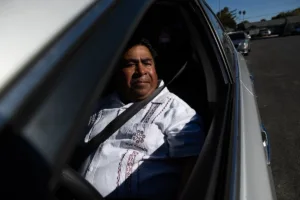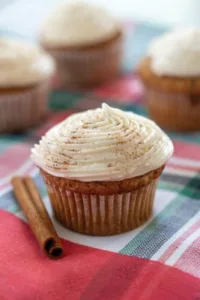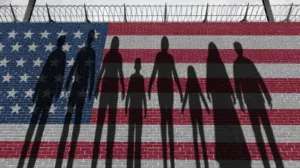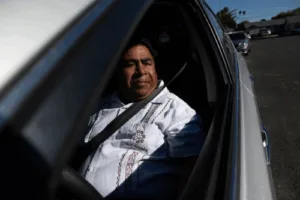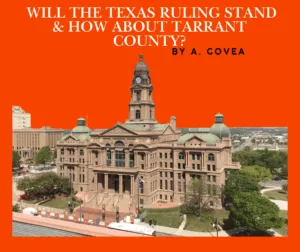Aug 8, 2025
Driving the American West reveals an immense diversity, both geographic and cultural, that is a deeply enmeshed part of the nation’s democratic spirit.
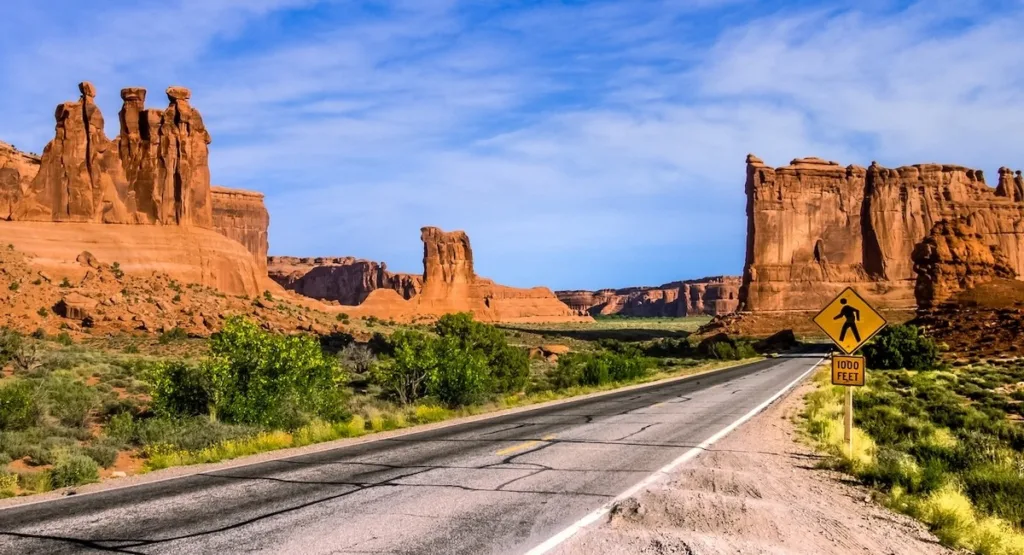
Arches National Park, Utah. Credit: Ian D. Keating. Published under CC License 2.0
My dad had this funny notion about automobiles. He was not a gear head, not by a mile. In fact, I’m pretty sure he hated cars and disliked driving, and to be honest he wasn’t very good at it. But, in the car, often seated cross-legged in the passenger seat, staring out of the window at the world whizzing by, he would pontificate on things large and small.
“Cars are the last bastion of American democracy,” he would say. “You control where you go, you control the entertainment, even the weather.”
I thought about those words recently as I drove the American West, on an impromptu 2,500-mile road trip with my wife and Lucky, our leggy chihuahua. We left San Francisco on a foggy Friday morning to spend a weekend with some friends in Nevada City, an early Gold Rush town in the Sierra foothills that today feels more like the place “burners”—Burning Man acolytes—go to recharge between festivals.
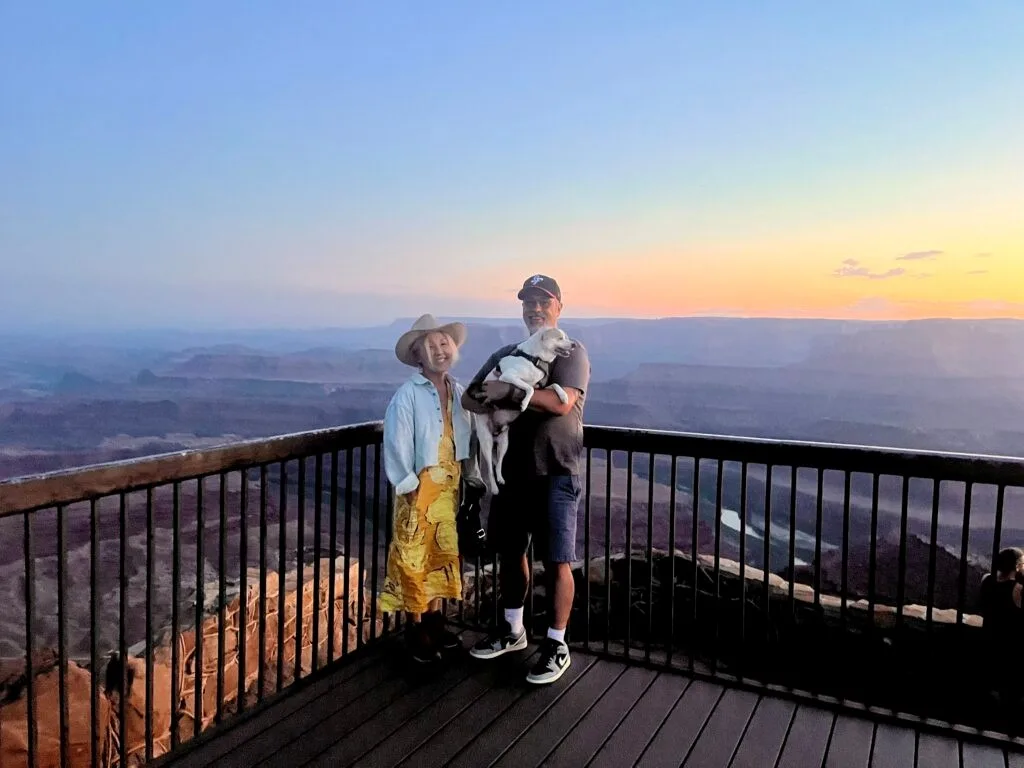
The author with his wife, Aruna and Lucky at Dead Horse Point State Park, outside Moab, Utah.
Our last afternoon there, we pop into a local chocolate boutique, which inside looks more like an idealized gypsy tent, all shades of black lace and scented candles. Off to the side a table beckons, an open set of hand-painted oracle cards spread across the top. I draw one, feigning skepticism. “Self-love,” is its message.
The next morning we make a beeline along I80, descending out of the Sierras and into an ocean of unforgiving desert that is the state of Nevada. I biked this stretch years ago with a friend who loved the desert, who felt its call. “Spill some water anywhere else and it’s ok,” he told me. “Here, it’s your ass.”
We stop for lunch at a random Korean barbecue joint in Winnemucca, a tiny desert town once known for its mix of Basque and cowboy culture. Inside, families and locals—some white, some Latino, a few Polynesians—sit enjoying dishes of grilled meat and fermented veggies. From the interior the place had clearly once been a taqueria.
“While our elites tell us that diversity is our greatest strength, they destroy the very institutions that allow us to thrive and build a common sense of purpose and meaning as Americans.” That’s Vice President JD Vance, speaking recently at the Claremont Institute, a right-wing think tank. Clearly, he hasn’t been to Winnemucca, I think.
What feels like an eternity later, we arrive in Salt Lake City, just as the sun is beginning to dip beneath the desert expanse. We dine on to-go falafels served up by a blue haired indifferent teen, which we eat sitting next to a small group of Indian tech workers.
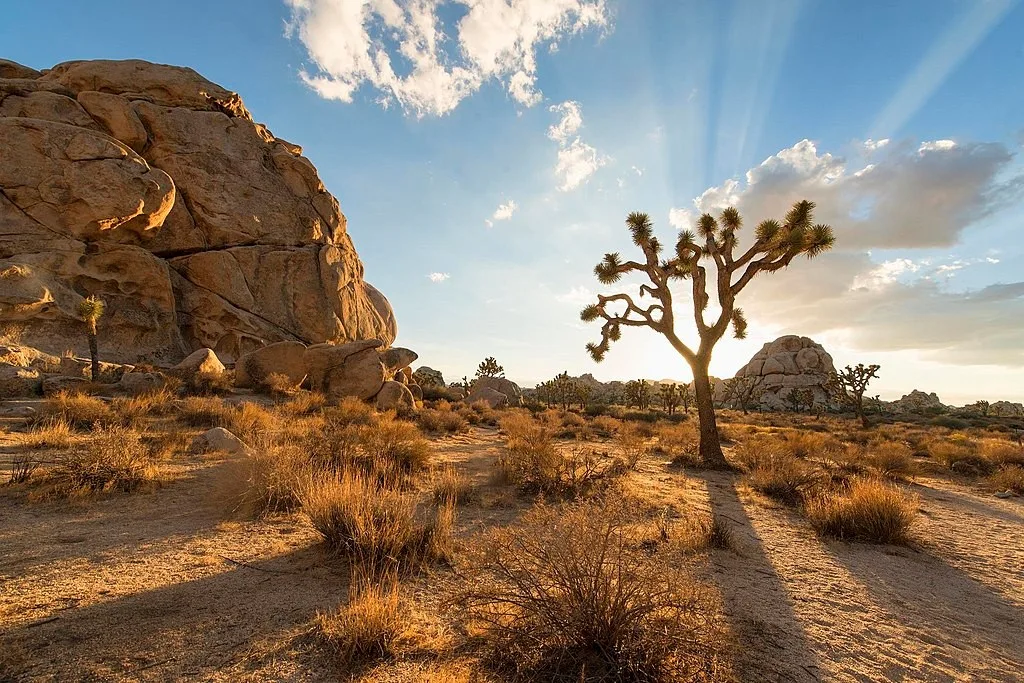
Joshua Tree National Park. Mormon settlers named the tree after the biblical figure, Joshua, whose arms rose heavenward in prayer. (Via Wikimedia Commons)
At a local coffee shop the next day, just down the street from the Mormon Tabernacle, the epicenter of Joseph Smith’s fever dream, I notice a small sticker next to the tip jar. “Protect trans kids.” I saw a similar diminutive sticker pasted to a crossing light at the last intersection. Cities, I think, sometimes speak in whispers.
“You know, the Mormons are disappearing from that city,” author and essayist Richard Rodriguez later tells me over the phone. His most recent book, Darling, is an exploration of the desert faiths, from the Abrahamic God of Mecca to the twinkling lights of Vegas.
And while it is true, that the share of Mormons in Salt Lake City is falling—less than half, according to recent figures—I would come to learn that the Mormon stamp remains indelibly imprinted on the western expanse, from the famed Joshua trees of the Mojave Desert (so named for the biblical prophet Joshua), to Moab, that red rock playground for outdoor enthusiasts in southeastern Utah whose name can be interpreted as “the territory just outside God’s promised land.”
Back on the interstate, which, come to think of it, was America’s internet before there was such a thing, we begin the climb east toward the rolling plains of southern Wyoming, before turning south through the Medicine Bow Range into Laramie and then, like the titans of ancient Greek myth, rise the foothills of the Rocky Mountains.
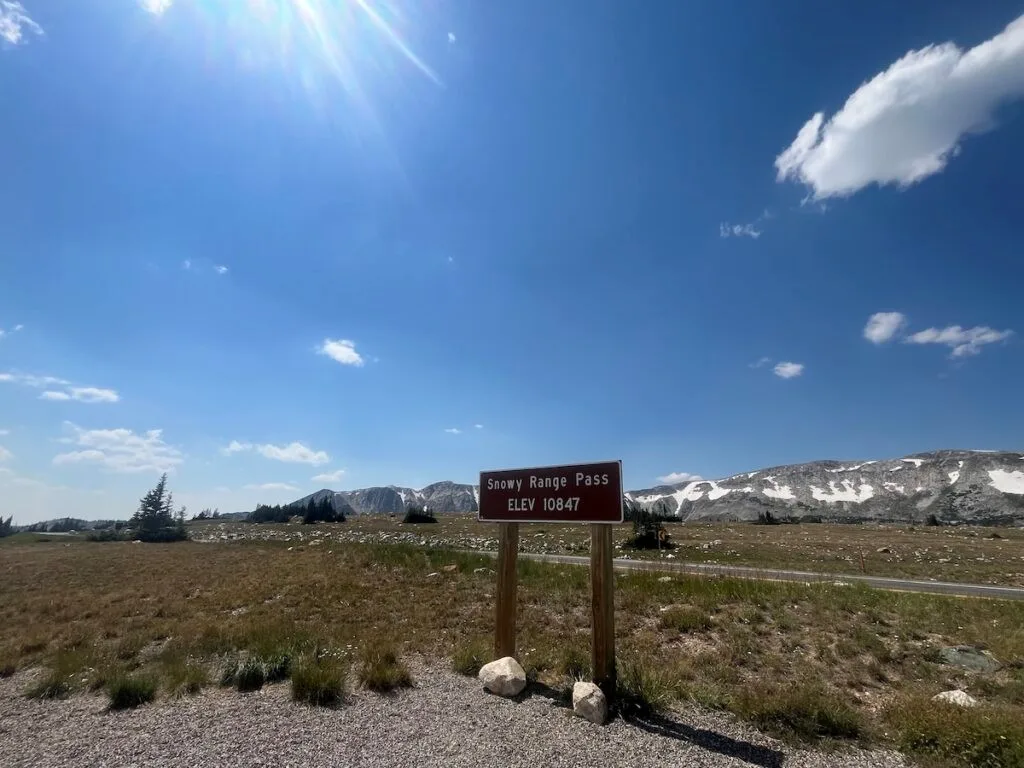
The Medicine Bow Range cuts across southern Wyoming and into northern Colorado. (Credit author)
There is some strange power this land holds. Europeans often quip about how young America is, but the land is old, and it is filled with stories, geologic, historic, stories that, on trips like this, seep into your psyche, their hold iron clad, wordless.
At just under 10,000 feet sits the tiny unincorporated mountain town of Nederland, some 20 miles above Boulder, part of the Indian Peaks Wilderness. It’s here we meet our friends, two Chinese American sisters who’ve made a go at carving out a life in Colorado’s rugged mountain landscape.
Between foraging classes and managing AirBnB guests, our friends organize a last-minute kimchi making workshop for their circle of friends in the area, mostly young folks—a diverse group, Latinos, a young Chinese American adoptee who now lives out of her van traversing the Rockies, an elegant Ethiopian woman and her partner, a commercial cannabis farmer.
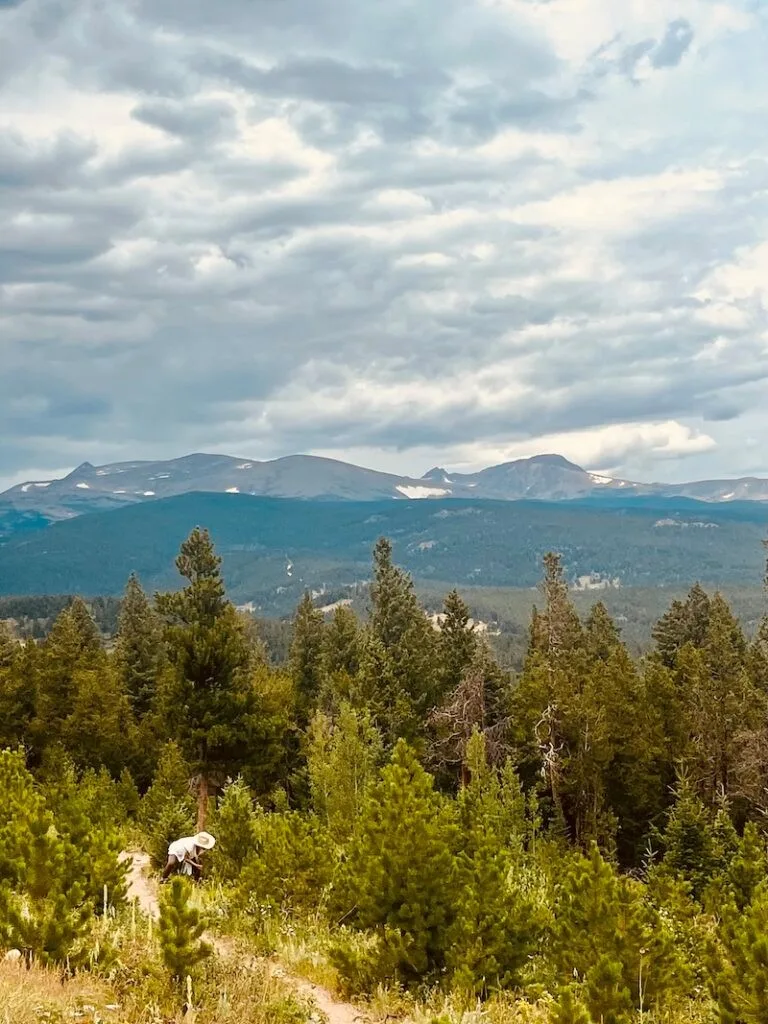
Harvesting wild raspberries in Nederland, Colorado. (Credit author)
This is not the America I expected. Hopped up on headlines and social media feeds, I assumed I was entering into a Trumpian dystopia, flags all a flutter celebrating the nation’s extreme and extremely terrifying rightward lurch. (Ironically, most of the Trump/Vance flags we passed were in bluest of blue California, along the I5 through the Central Valley.)
I had departed on this trip with a vague question in my mind, namely, what the hell connects me, a blue-blooded San Francisco liberal through and through, to the rest of this country? Out the window, little trailer communities sprout from the dry desert. What on earth do I share with these folks, I wonder, that makes us American?
If you’ve never been, Arches National Park, just outside Moab, Utah is truly the stuff of fantasy. Once an ancient seabed, every spire, every rock hued vista here is doused in mystery, imagination. It’s not hard, standing under the scorching sun, to imagine what visions this land inspired in those who traversed its parched surface.
After an all-too-short tour, we’re back on the road, heading west. “I’m going to California with an aching in my heart.” The lines from Led Zeppelin tumble through my mind.
We pass through miles upon miles of desert, a punishing expanse that extends southward almost halfway through Mexico. I think, the air conditioning on full blast, the thermometer in the triple digits, of the migrants who attempt the crossing.
But first, Vegas, a city that, from a distance, appears to float above the desert floor, like Venice sans the canals. I’ve convinced myself that our little Lucky, who for days on end has sat, Zen-like, quietly peering out the window from his cushioned crate in the back seat, will somehow bring us… well, luck.
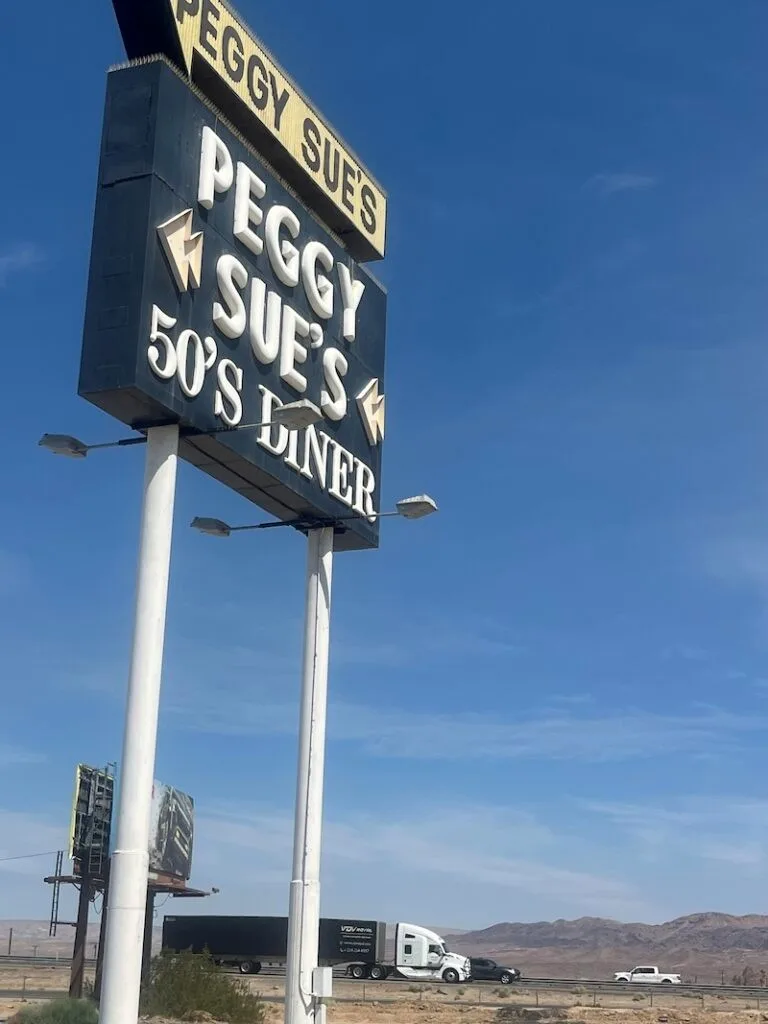
Classic American fare at Peggy Sues 50’s Diner along I15 between Las Vegas and Bakersfield, CA. (Credit author)
“What am I gonna do with all those winnings,” I fantasize. I can almost hear the clanging of the slot machine as it announces our triumph. “Aww, Lucky!” Zilch, zip… we leave $150 in the hole. The Lord giveth and the Lord taketh.
From Salt Lake to Vegas and parts in between, we’ve done the hajj, or at least the American version of it.
We stop at Peggy Sues ‘50s Diner, along Highway 15 between Vegas and Bakersfield, before descending the Tehachapi Pass, which separates the Mojave from the San Joaquin Valley. What was desert scrub gives way to verdant fields, America’s breadbasket.
“The desert unlocked something in me,” my wife texts a friend after we return home. I get back to work, taking in the day’s headlines, the expanse of the open road replaced by the glow of the monitor in front of me.
The Chinese word “dao” means many things, among them harmony, or the way, the path, the road. It’s a word my dad often referenced. Direction, or dao, he would say, as long as you have that, you’re fine.
We had that, for those days and miles on the road. And yeah, it did feel like democracy.
